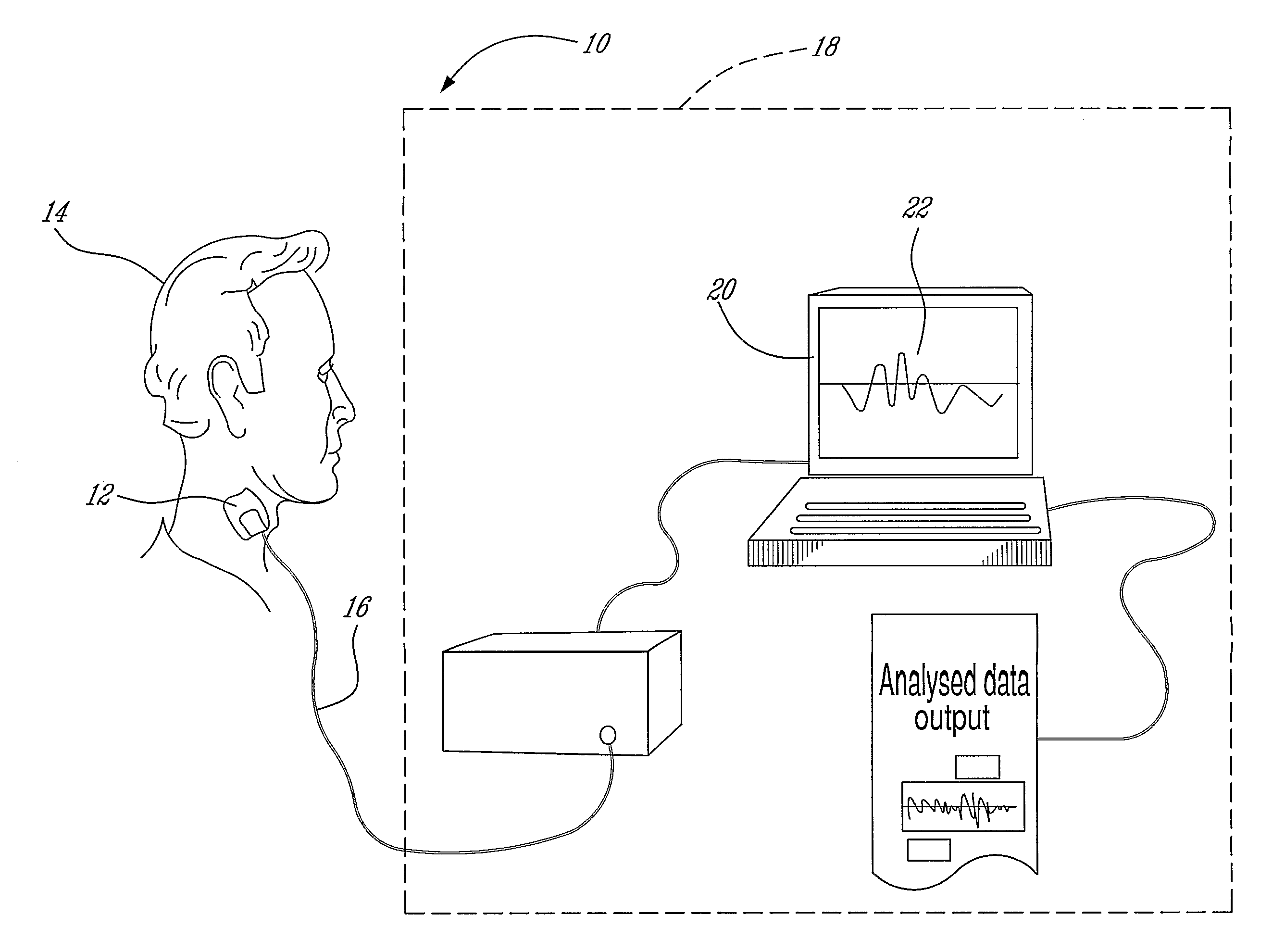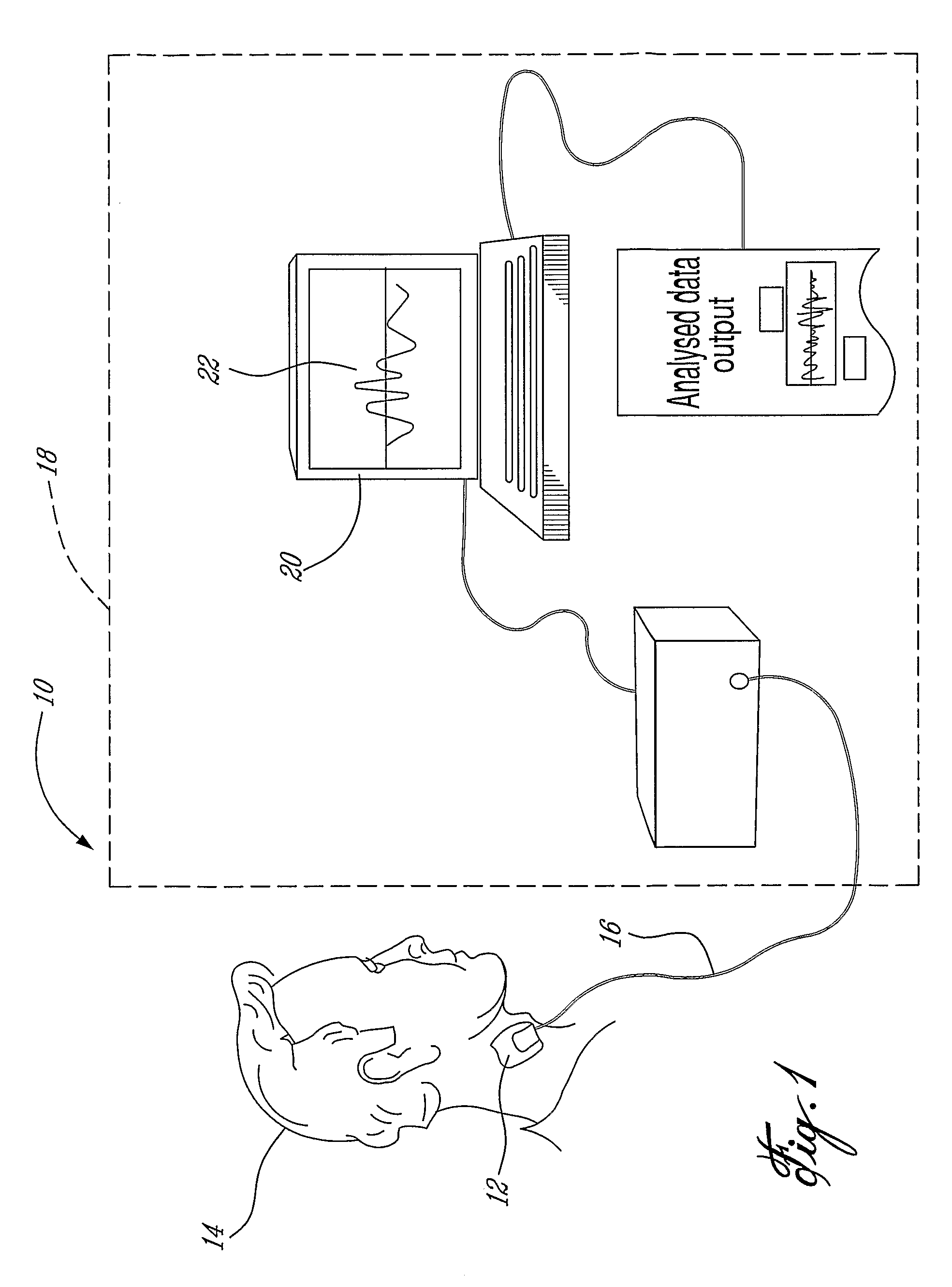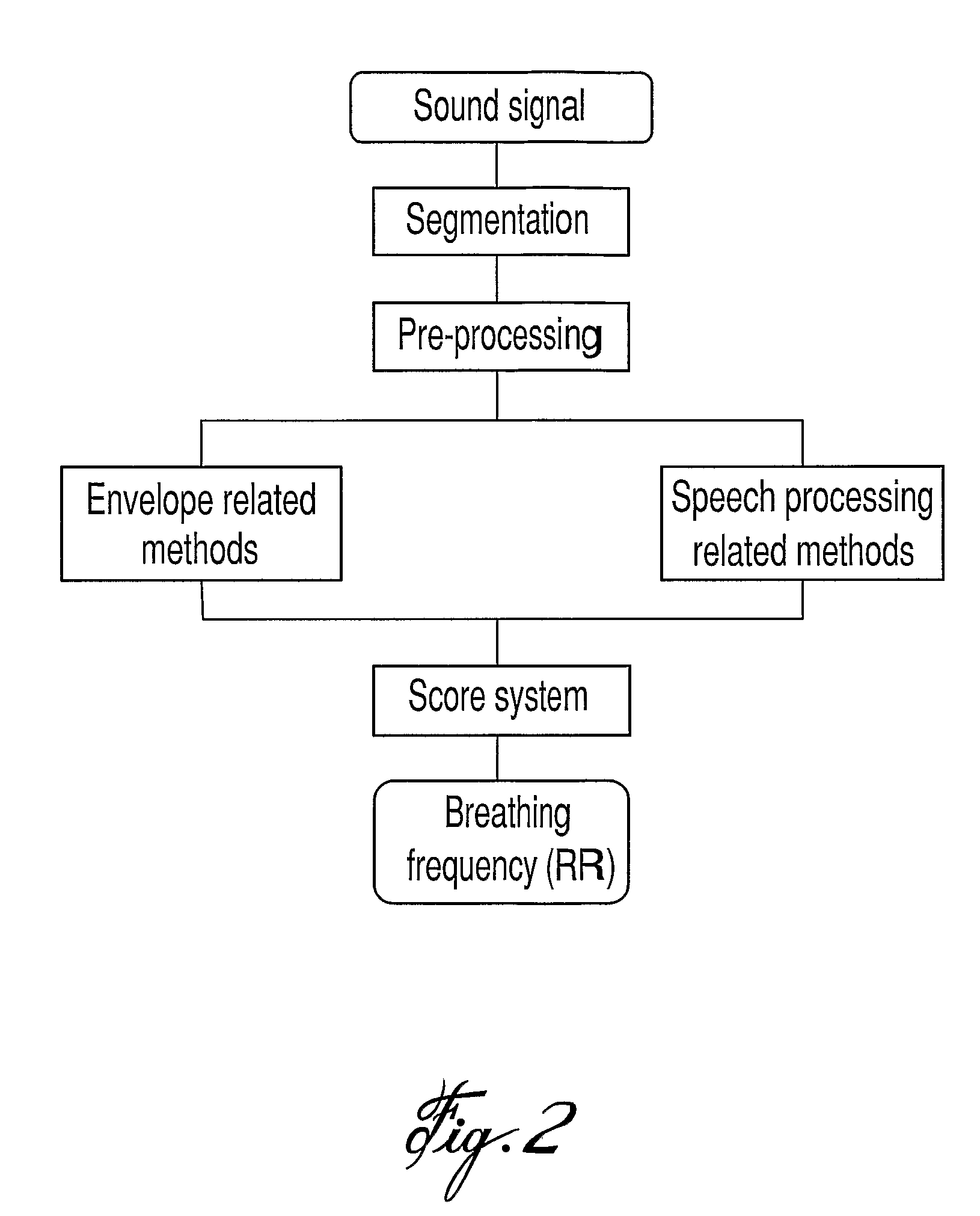Non-invasive monitoring of respiratory rate, heart rate and apnea
a non-invasive monitoring and respiratory rate technology, applied in the field of non-invasive monitoring of respiratory rate, heart rate and apnea, can solve the problems of respiratory depression, respiratory failure can become a life-threatening condition, and respiratory failure is very difficult to predi
- Summary
- Abstract
- Description
- Claims
- Application Information
AI Technical Summary
Benefits of technology
Problems solved by technology
Method used
Image
Examples
Embodiment Construction
[0032]Referring now to FIG. 1, a non-invasive respiratory rate, heart rate and apnea monitor, generally referred to using the reference numeral 10, will now be described. Biological sound sensors 12, illustratively identical and for example as those described in U.S. Pat. No. 6,661,161, detect the biological sounds and vibrations emanating from the throat of a patient 14 and produces an output electrical signal. Note that in a given embodiment, a single biological sound sensor as in 12 or more than one could also be used to detect biological sounds and vibrations. The signals are transferred via appropriate electrical leads 16 to a data acquisition system 18, which amplifies and filters the electrical signal prior to converting them into a digital format. Finally, the methods implemented in a computer 20 extract the physiological information from the data and display the results through a graphical user interface 22.
[0033]Acquisition System
[0034]The acquisition system comprises a Pe...
PUM
 Login to View More
Login to View More Abstract
Description
Claims
Application Information
 Login to View More
Login to View More - R&D
- Intellectual Property
- Life Sciences
- Materials
- Tech Scout
- Unparalleled Data Quality
- Higher Quality Content
- 60% Fewer Hallucinations
Browse by: Latest US Patents, China's latest patents, Technical Efficacy Thesaurus, Application Domain, Technology Topic, Popular Technical Reports.
© 2025 PatSnap. All rights reserved.Legal|Privacy policy|Modern Slavery Act Transparency Statement|Sitemap|About US| Contact US: help@patsnap.com



